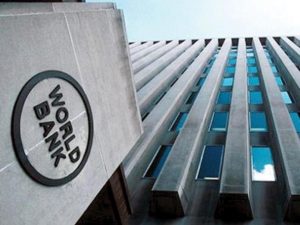Ethiopia: Breaking the Cycle: Plea for Peace, Unity, and Inclusive Dialogue in Tigray

Addis Abeba — Political tensions have been mounting in Tigray since June 2024, stemming from an internal rift within the Tigray People’s Liberation Front (TPLF) between Debretsion Gebremichael (PhD) and Getachew Reda. The divide deepened following the party’s 14th Congress in August 2024, after which Debretsion’s faction moved to remove Getachew and several other senior officials. The situation escalated further five months ago when top commanders of the Tigray Forces announced their decision to dissolve and restructure the interim administration, describing it as “weakened” and “failing to meet its responsibilities.”
Tensions appear to have eased somewhat following the appointment of Lt. Gen. Tadesse Werede as interim president of the Tigray region, replacing Getachew Reda in April 2025. Nonetheless, the widening political divide has contributed to the rise of various armed factions.
Furthermore, the TPLF is currently at odds with the National Electoral Board of Ethiopia (NEBE) over its legal status. The dispute emerged after the party convened an assembly in August 2024, defying the board’s directive not to proceed without official authorization.
On 14 May, 2025, the NEBE formally revoked the TPLF’s legal status, citing the party’s failure to implement “corrective measures” previously mandated by the board. The decision, which took effect on May 5, 2025, followed the expiration of a three-month deadline issued to the TPLF in February. In response, the TPLF released a strongly worded statement, accusing both the Ethiopian government and the NEBE of undermining the Pretoria Agreement. The party warned that the continued refusal to reinstate its legal recognition poses a “serious threat” to the fragile peace process.
One of the most serious and deeply concerning threats currently facing Tigray is the widening rift within its political leadership and the fragmentation of its security forces. What initially began as support for a single political faction among the majority of “senior military commands” has now evolved into visible and potentially volatile divisions. Security forces that once coordinated joint resistance and fought side by side against external adversaries are now fractured and increasingly positioned as rivals. This internal discord is not merely a political dispute–it is a looming crisis. Should these divisions escalate into open conflict, it will not be a struggle for justice or freedom but a fratricidal war, inflicting devastation that would be total, irreversible, and felt for generations.
For a region already ravaged by a brutal war, renewed conflict among its own security forces would constitute a tragic betrayal of the immense sacrifices made by its people. The people of Tigray cannot endure another wave of violence–particularly one that risks being inflamed by external actors, most notably Eritrea. However, both the political and military leadership must understand that unity is not a choice–it is a necessity for survival. This critical moment calls for humility, open dialogue, inclusive engagement, and an eternal dedication to placing the needs of the people above all else.
Tigray’s wounds too deep for another war
Beyond the prevailing political uncertainties, the people of Tigray are now contending with a severe economic crisis characterized by skyrocketing prices for basic goods. This surge in the cost of everyday necessities has exacerbated an already dire situation, pushing residents of the region to the brink. Reports indicate that the ongoing economic crisis has resulted in substantial price increases across multiple sectors, with a particular impact on essential commodities such as rice, wheat, oil, sugar, and vegetables. Moreover, fuel shortages have driven up transportation costs, further contributing to the increased prices of locally produced goods.
In a region where daily survival remains a struggle, any renewed conflict would extinguish hopes for recovery.”
Furthermore, hundreds of thousands of internally displaced persons (IDPs) in Tigray remain in a state of uncertainty–without homes, land, or a sense of security, and still unable to return to their places of origin. In a recent three-day protest held in Mekelle, these displaced individuals called for an urgent return to their communities and appealed to the authorities to prevent them from spending yet another rainy season in temporary shelters.
Over the past fifty years, bloody wars and recurring conflicts have claimed countless lives and devastated generations in the Tigray region and beyond. In the absence of any meaningful outcome from such destruction, now is the time to pursue a path toward sustainable peace and democratic coexistence–both within Tigray and with its regional neighbors.
In a region where daily survival remains a struggle, any renewed conflict would extinguish hopes for recovery. It would collapse an economy already on life support, further cripple fragile healthcare and education systems, deepen psychological trauma, and irreparably damage the social fabric of communities. Reports indicate that student enrollment in Tigray has dropped dramatically, with only 40% of the 2.4 million eligible students registering for classes at the start of the current academic year.
Perhaps most tragically, renewed conflict would perpetuate grave injustices–particularly for women, who often face sexual violence, exploitation, and forced labor. Many are subjected to sexual slavery or bear the burden of unwaged labor to keep their families afloat, while those responsible for these injustices continue to enjoy power, wealth, and impunity. According to reports, irregular migration from Tigray is on the rise, driven by staggering unemployment and the economic devastation left in the wake of war.
This is not merely a political crisis–it is a profound moral one. If left unaddressed, it will continue to fuel division, resentment, and instability throughout the region.
The most powerful weapon against the threat of renewed conflict is a united, informed, and vocal public. Every citizen–whether an individual, a member of the elite, a political party, or a civil society organization–has a vital role to play. We must tell the true stories of war, reminding our families, neighbors, and communities what conflict truly means–not for generals or political leaders, but for mothers, young people, and children. We must reject propaganda, question every call to violence, and ask: who truly benefits, and who bears the cost? Above all, we must educate our youth, teaching them that civil war is not about heroism or glory–it is about devastation, loss, and a future stolen before it even begins.
Tigray’s future stands at a crossroads: it can be one of reconstruction, justice, and dignity–or one marked by continued suffering and despair. The difference will be made by ordinary people choosing peace over silence. Let this moment be remembered in history as the point when Tigray said, “Enough.” Let our voices rise above the drums of war.
We therefore call on all Ethiopians–especially Tigrayans–the federal government, the Tigray Interim Regional Administration (TIRA), civil society organizations, and political parties: this is your moment. Preventing conflict is not someone else’s responsibility–it is ours. Speak up. Stand firm. And never, ever forget the cost of silence. Peace is possible–but only if we choose to fight for it together.
Editor’s Note: This op-ed was contributed by Guanshe Hadgu of Voice for Democracy and Social Justice, in collaboration with Human Rights First and the Solidarity of Tigreans for Independence and Liberty.
By Addis Standard.



